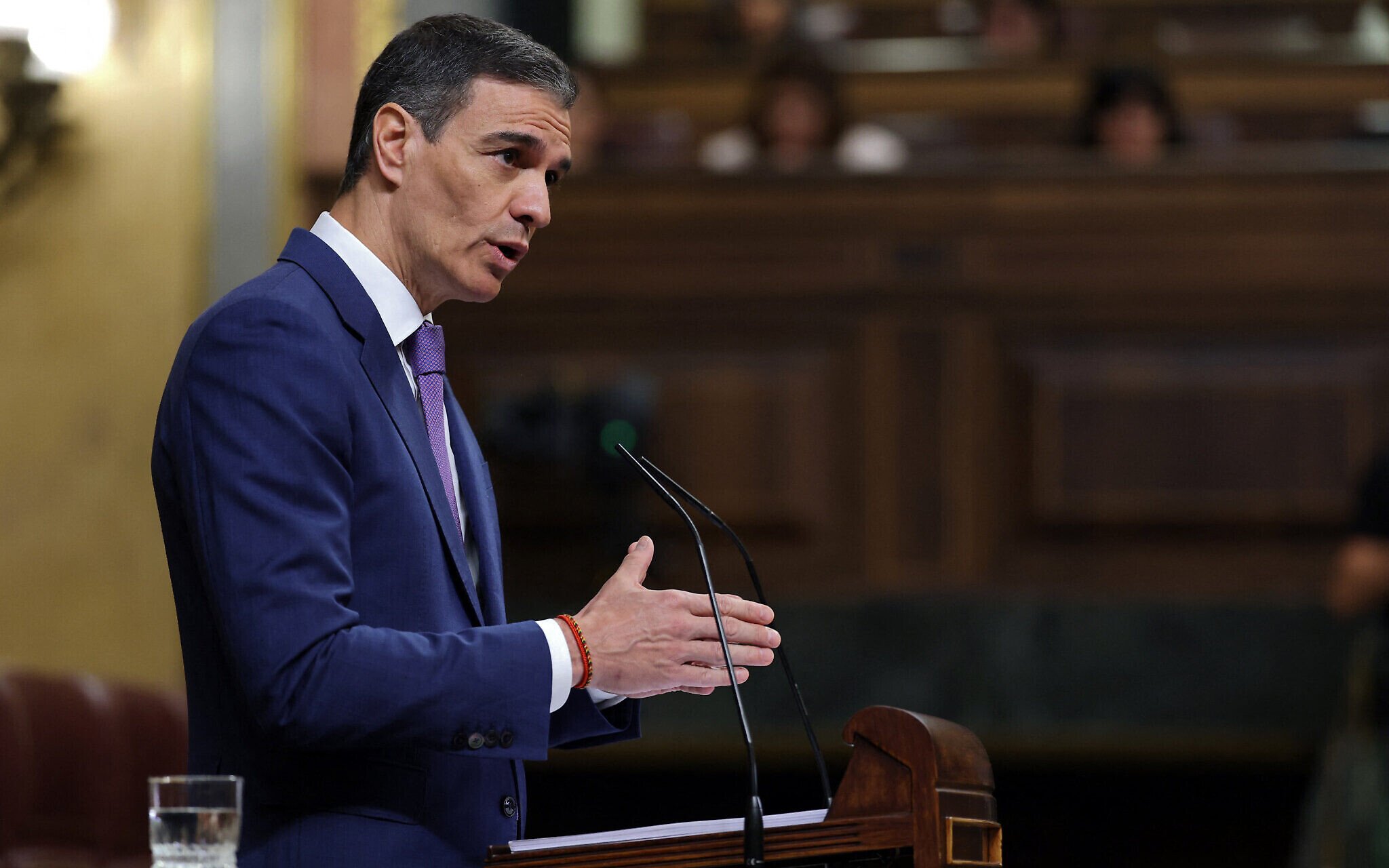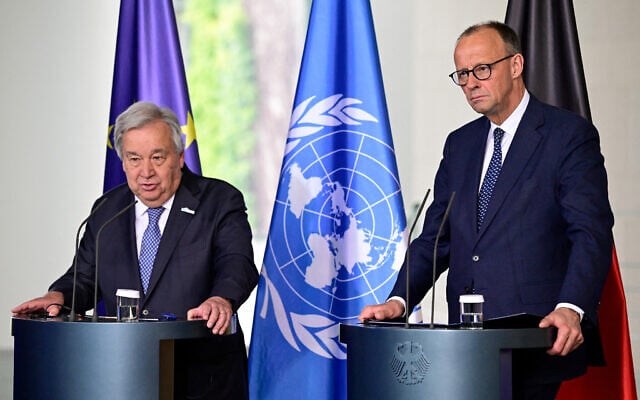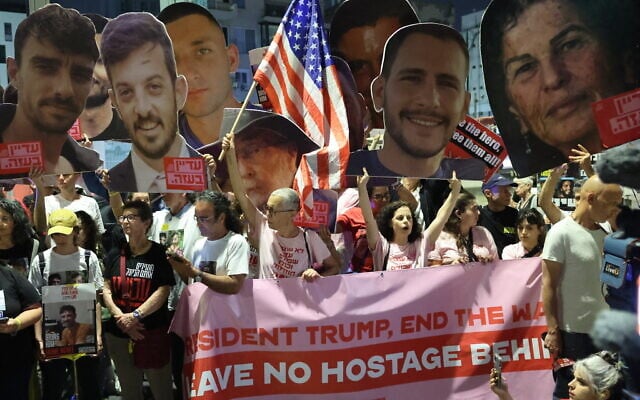



Spanish Prime Minister Pedro Sanchez called Israel a “genocidal state� while speaking in the Spanish parliament on Wednesday, saying that Madrid “does not do business� with such a country.
The comments sparked anger in Israel, and the Foreign Ministry summoned the Spanish ambassador to Israel for a dressing down.
“Following the severe remarks made by Spanish Prime Minister Pedro Sanchez, the Spanish ambassador to Israel has been summoned for a reprimand meeting at the Foreign Ministry in Jerusalem tomorrow,� the Foreign Ministry said in a statement.
According to Spanish media reports, this was the first time Sanchez had called Israel “genocidal,” a term that far-left parties in the country use frequently to refer to the Jewish state over its actions during the war in Gaza, and one that Israel categorically rejects.
Spain is a long-time critic of Israel’s policies toward Palestinians in Gaza and the West Bank, and has outraged Jerusalem by recognizing Palestinian statehood last May, as did Norway and Ireland.
Sanchez’s government recently canceled a contract to purchase ammunition rounds for its police force from an Israeli firm, ceding to pressure from its hard-left junior coalition partner Sumar after it threatened to bolt the government.
Sanchez’s government pledged to stop selling arms to Israel shortly after October 7, 2023, when thousands of Hamas-led terrorists stormed southern Israel to kill some 1,200 people and take 251 hostages, sparking the war in Gaza. Over 52,000 people have since been killed in the Strip, according to the Hamas health ministry’s unverifiable tally, which does not differentiate between civilians and combatants.
Last year, the Spanish government widened that commitment to include weapons purchases from Israel.
Israel’s ongoing offensive in Gaza and the continued blockade of aid has sparked mounting opposition, including from countries that have been largely supportive of Israel in the wake of the October 7 Hamas massacre that sparked the war.
Also on Wednesday, Italian Prime Minister Giorgia Meloni said during a parliament session that the humanitarian situation in Gaza is “ever more dramatic and unjustifiable,” stressing she has repeatedly urged Israel to find a way to end the conflict.
“It is a request that I renew today in the face of a humanitarian situation in Gaza that I have no difficulty in defining as increasingly dramatic and unjustifiable,” Meloni said.
Italy’s right-wing government, while much less hostile than Spain’s, has been increasingly vocal against Israel’s actions in Gaza during the war, and has repeatedly called for a ceasefire, hostage release deal, and an end to Israel’s aid blockade on the Strip.

Gaza has not received any aid in over two months amid Israel’s blockade, causing a dire humanitarian situation, according to aid groups on the ground.
German Chancellor Friedrich Merz also issued a statement about Gaza on Wednesday, saying he urges all sides to avert a “famine� in the enclave.
While Israeli officials have denied that famine is currently taking place in Gaza, a recent report said that some officers in the Israeli military have concluded that Gaza could face widespread starvation if the delivery of food aid is not restored in the coming weeks, citing three Israeli defense officials familiar with conditions in the Strip.
Striking a different tone than his Spanish and Italian counterparts, Merz said that Germany stands by Israel’s side, but emphasized that “we expect efforts for more humanitarian provision for the population in Gaza whose suffering we see, especially among children, women and the elderly.�
“It is a humanitarian obligation on all parties… and I stress, on all parties — that famine in the region be averted as soon as possible,� Merz said.

Merz also said he hopes that there will be “successful negotiations for a ceasefire and the release of hostages� still being held by Hamas, including those with German nationality, and said that Israel should calibrate its military actions to ensure all remaining living captives can return home alive.
Germany, which has long sought to atone for the Holocaust, has been a staunch supporter of Israel, with which it marked 60 years of diplomatic relations this week.
Asked whether Germany would implement an arrest warrant issued by the International Criminal Court against Prime Minister Benjamin Netanyahu, Merz said that in principle it should be possible for an Israeli premier to visit Germany.
How this could happen would be clarified when necessary, he said at a joint press conference with UN Secretary-General Antonio Guterres in Berlin, adding that no bilateral visits by him or Netanyahu are currently planned.
Guterres also called for a Gaza ceasefire and “unimpeded humanitarian access” to the Palestinian territory.
“In relation to Gaza, I reiterate my call for the immediate and unconditional release of all hostages, unimpeded humanitarian access and an immediate cessation of hostilities allowing for an irreversible path towards a two-state solution,” Guterres said.

Negotiations to reach a ceasefire and hostage deal in Gaza resumed this week, with Israel sending a delegation to Qatar to meet mediators after the US secured the release of Israeli-American hostage soldier Edan Alexander in indirect talks with Hamas, without Israeli involvement.
While mediators have expressed optimism over the opportunity to reach a deal, Netanyahu’s refusal to accept proposals that commit Jerusalem to permanently ending the war in Gaza significantly limit chances for success, an Israeli and an Arab official told The Times of Israel on Wednesday.
Fifty-eight hostages — 23 believed to be alive, and the bodies of 35 confirmed dead — are still held by terror groups in the Strip, including a soldier killed in 2014.
